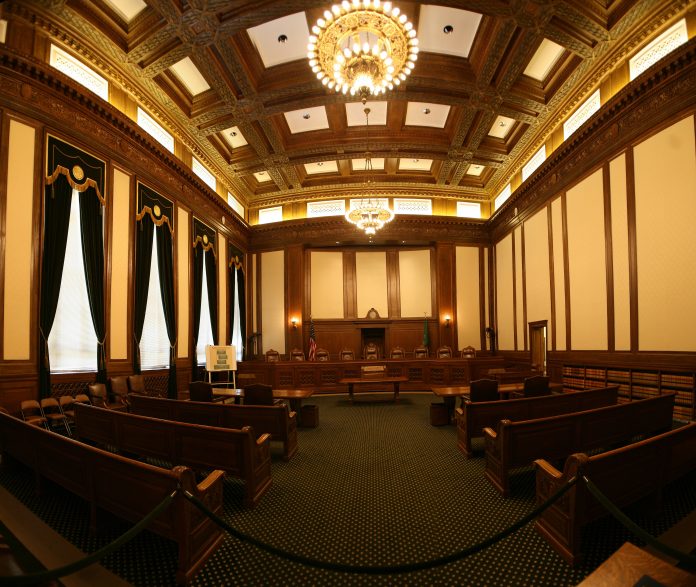
The U.S. Supreme Court ruled against a local labor union Thursday in a decision that some in the labor movement say threatens union members’ right to strike.
The decision came out of a 2017 lawsuit in which a cement company, Glacier Northwest, also called CalPortland, sued Teamsters Local 174 after a workers’ strike ended with ruined cement. The company filed a tort claim against the union, which union lawyers argued was preempted by a federal law called the National Labor Relations Act (NLRA).
The Washington State Supreme Court sided with the union in 2021, but the Supreme Court justices overturned that decision, arguing that the workers had not taken “reasonable precautions” to protect Glacier Northwest’s property from “foreseeable, aggravated, and imminent danger due to the sudden cessation of work.”
Only Justice Ketanji Brown Jackson dissented, writing that the decision “threatens to impinge on the right to strike” and that right “inherently includes the right to impose economic harm on the [workers’] employer.”
According to the narrative laid out in the decision, penned by Justice Amy Coney Barrett, the contract between Glacier’s truck drivers and the company expired in 2017, and negotiations “did not go smoothly.” On August 11, 2017, 16 trucks laden with cement were out for delivery when a union member called for a work stoppage.
The drivers brought the trucks back, which still had cement in them. Nine of the drivers didn’t tell anyone that they had brought the trucks back. Non-union workers got the cement out before it dried, which could have damaged the trucks, but the cement itself was lost. The company filed a claim against the union.
The union argued that federal law protecting the right to strike trumped state law cited by the attorneys for the company.
However, the majority opinion found that the union had not met its duty to protect the company’s property because workers could have started the stoppage before the cement was loaded into the trucks, which put the trucks at risk of damage.
In her dissent, Jackson also argued that the Supreme Court wasn’t the appropriate venue for this fight at all – that’s what the National Labor Relations Board (NLRB), the body that deals with conflicts between workers and companies, is for.
“[W]e have no business delving into this particular labor dispute at this time,” she wrote.
In a statement, Rob Binam, the senior vice president and general counsel for CalPortland, said the company was pleased by the Supreme Court’s decision.
“The decision confirms the well-established legal principle that a labor union cannot take affirmative steps to endanger or destroy an employer’s property in furtherance of a strike, and then claim such tortious acts are somehow protected by the National Labor Relations Act,” he wrote.
Darin M. Dalmat, senior partner at Barnard Iglitzin & Lavitt, which represented the union, said in a statement that the loss did not strike a blow at the fundamental rights of unions to strike and that the NLRB would ultimately find that the union’s 2017 strike was protected.
“Although we’re disappointed in today’s result, the Court’s opinion leaves intact both the federally protected right to strike and the basic framework for determining when labor disputes should be decided by the National Labor Relations Board instead of state courts,” Dalmat wrote in a statement.
In their respective statements, local labor leaders and one striker said that the decision “changes nothing,” but Matt Smith, an organizer with Workers Strike Back, isn’t so sure.
Workers Strike Back is a group that works to organize rank-and-file workers and is backed by outgoing Councilmember Kshama Sawant.
“It may leave the right to strike intact in a certain way, but only ineffective strikes,” Smith said of the decision, continuing that it opened the doors to bosses dragging unions through the courts and bypassing the NLRB.
“It is a huge step back,” he said.
This article was produced in partnership with Real Change News, where Ashley Archibald is the editor.

Ashley Archibald
Ashley Archibald is the editor of Real Change News, a nonprofit journalism outlet covering economic and social justice issues in Seattle and beyond. She can be reached at editor [at] realchangenews.org and on Twitter at @AshleyA_RC.
